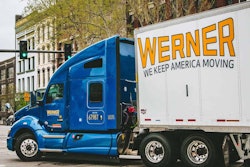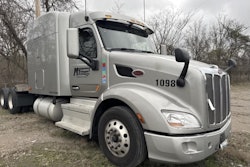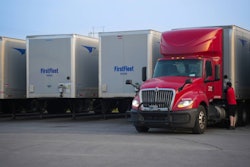Your assistant pages you to announce that a particular driver is here to see you – again. You groan and roll your eyes, but you invite him in. He’s a good driver and has been with you for years, but he’s always complaining about something.
This time, however, he struts into your office and greets you with a wide grin – one that troubles you far more than the scowls you are accustomed to. “Guess what?” he gushes mischievously. “We’re unionized now.”
Before long, this potential nightmare could be very real. Under the proposed Employee Free Choice Act, if a majority of employees that would be appropriate for collective bargaining – all your drivers, perhaps, or maybe your technicians – sign a petition or check card, you have a union. There’s no secret ballot election, and you may not even know there’s an organizing effort under way or have an opportunity to tell your side. And without a secret ballot, workers hesitant to go along could be subject to cajoling, harassment or threats by union organizers.
Once you have a union, all that’s left then is to negotiate the contract. And if you can’t, a federal mediator will come in to help. If you still can’t reach agreement, an arbitration panel ultimately will impose one on you. The bill also would stiffen penalties on companies that engage in unfair labor practices during organizing drives.
In the last Congress, the Employee Free Choice Act had 233 co-sponsors – mostly Democrats – in the House and 46 Democratic co-sponsors in the Senate. It passed the House, and on a majority vote alone, it would have passed the Senate. But there were two roadblocks: Senate Republicans and President Bush. Democrats held a razor-thin majority in the Senate, not nearly enough to break a filibuster.
After Nov. 4, we’re looking at a Democrat in the White House and Democrats holding at least 58 seats in the Senate – just two shy of the magical 60 votes needed to end a filibuster. Races in Georgia and Minnesota likely will be settled by the time you read this. But even if Democrats don’t reach 60, who knows what deals could be cut to sway a moderate Republican or two?
One way to deal with the threat of unionization is to use independent contractors as much as possible, but that avenue might not last for long. The Teamsters and others are pushing hard to undermine the independent contractor concept through litigation and lobbying at the federal as well as state level. Indeed, the Teamsters are widely regarded as being the force behind the provision in the Port of Los Angeles motor carrier concession agreement that requires drivers at the port to be employees. And President-elect Barack Obama himself sponsored legislation in the last Congress that would have made it harder to establish and maintain independent contractor status.
Supporters of the Employee Free Choice Act say the legislation is needed because the National Labor Relations Act is ineffective and the National Labor Relations Board isn’t doing its job to protect employee organizers and union sympathizers from employer harassment and retaliation. They argue that companies game the process to buy time and, worse, fire or demote employees engaged in organizing efforts. Those companies ultimately may be cited or fined for such actions, but it’s a small cost relative to the possibility of facing a collective bargaining agreement.
There are, no doubt, ample abuses of the current process and of employee rights by management. The solution to those is to tighten the enforcement of laws and regulations against unfair labor practices and to enhance those requirements as necessary. Simply adopting a counterbalancing injustice of giving unions the tools to harass and intimidate employees is no way to solve the problem. But given that passage of this legislation is a real possibility, now is the time for you to communicate with your employees – within the letter and spirit of the law, of course – about why a union isn’t necessary.








